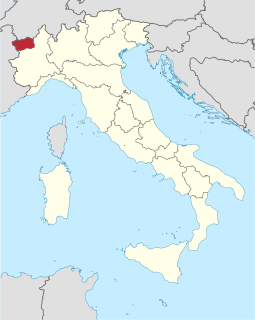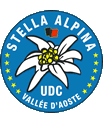 |
|---|
| This article is part of a series on the politics and government of Italy |
| Constitution |
|
| Foreign relations |
Related topics |
The 2017 Italian local elections were held on Sunday 11 June. If necessary, a run-off vote was held on Sunday 25 June. [1] The term of mayors and councils will last five years, unless an early election is triggered. [2]
Contents
In the autonomous regions of Trentino-Alto Adige/Südtirol and Aosta Valley the elections will be held on 7 May. [3] [4]

Trentino-Alto Adige/Südtirol is an autonomous region in Northern Italy. Since the 1970s, most legislative and administrative powers have been transferred to the two self-governing provinces that make up the region: the Province of Trento, commonly known as Trentino, and the Province of Bolzano, commonly known as South Tyrol.

The Aosta Valley is a mountainous autonomous region in northwestern Italy. It is bordered by Auvergne-Rhône-Alpes, France, to the west, Valais, Switzerland, to the north and by the Metropolitan City of Turin in the region of Piedmont, Italy, to the south and east.
The elections were characterized by a good performance of the Centre-right coalition and many losses for the Centre-left coalition, which however won in the majority of comuni with more than 15,000 inhabitants, but lost in the most important cities like Genoa, L'Aquila and Parma; [5] while the Five Star Movement was excluded from the runoffs in all the most important cities. [6] [7] [8]
The centre-right coalition is a political alliance of political parties in Italy, active—under several forms and names—since 1994, when Silvio Berlusconi entered politics and formed his Forza Italia party.
The centre-left coalition is a political alliance of political parties in Italy active, under several forms and names, since 1995 when The Olive Tree was formed under the leadership of Romano Prodi. The centre-left coalition ruled the country for more than twelve years between 1996 and 2018.

Genoa is the capital of the Italian region of Liguria and the sixth-largest city in Italy. In 2015, 594,733 people lived within the city's administrative limits. As of the 2011 Italian census, the Province of Genoa, which in 2015 became the Metropolitan City of Genoa, counted 855,834 resident persons. Over 1.5 million people live in the wider metropolitan area stretching along the Italian Riviera.




